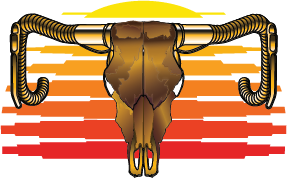HHH Medical
The medical presence at Hotter’N Hell Hundred has continued to evolve since the inception of the Ride in 1982. Supporting that first HHH Endurance Ride was a single medical unit at the final rest stop at Memorial Stadium. HHH Endurance Ride is now annually supported by over 800 medical volunteers including doctors, nurses, EMT’s, ambulance support, the Air Evac Lifeteam and support staff. They staff MASH type units at each of the 19 route rest stops and the finish line and can provide a range of necessary services to treat everything from bees embedded in rider’s ears to emu bites, road rash, under hydration, over hydration and hard landings.
Medical Information:
View the Heat Lecture PowerPoint Presentation (Update in Process)
2023 Medical Protocols: Click: Medical Protocols
Medical Volunteers: More than 1000 local medical personnel will volunteer their time to the Hotter’N Hell Hundred Endurance Ride. Doctors, nurses, physical therapists, hospital staff, American Red Cross volunteers and staff, and others associated with the medical field work together to make the ride safe for everyone, and to assure that no one is ever more than 5 miles from professional medical attention.
Medical services at the Endurance Ride are under the direction of the Medical Director: Medical treatment, basic first aid, suturing, massage on cramped muscles, IV fluids, and tetanus vaccinations are provided at the medical tents free of charge. Higher level care within the hospital setting is not free and is the financial responsibility of the rider as well as any ambulance transportation costs.
Medical Aid: With medical personnel at all Endurance Ride rest stops, roving the entire route and manning a central medical tent at the corner of 5th and Lamar (the Finish Line) across from MPEC, riders have quick access to any necessary medical attention. Between 3 and 5 percent of riders visit the medical tent each year. About 50 percent of those have heat-related problems, mostly cramps. The remainder of the riders suffer from minor to major scrapes, abrasions or other traumatic injuries.
Hydration Tips: HHH doctors recommend drinking according to thirst. HHH doctors approved and designated Superieur Electrolytes as a drink of choice for long-distance bikers.
Helmet Rule: The 1988 decision to require protective helmets for all riders was an important safety decision, as HHH was the first major national ride to make the move. The majority of other rides have followed suit.
Volunteering Medical Groups: (partial list)
United Regional – Primary Medical Emergency Sponsor
Air Evac
Angels Care Home Health
BestCare Health Services
Clinics of North Texas
Community Health Care Center
Electra Hospital District
Electra Memorial Hospital
Healing Hands Healthcare
Hospice of Wichita Falls
Kell West Regional Hospital
MSU School of Nursing
Promise Healthcare
Red River Hospital
Sheppard Air Force Base
SAFB 82nd Medical Group
Trans Star Ambulance
United Regional Physician Group
Hotter'N Hell Hundred Endurance Ride medical volunteers use emergency supplies including intravenous fluids, bandages and more - all of which is donated by United Regional Health Care System, our primary medical sponsor for the Endurance Ride events.
Special thanks go to the local Lion's Club for working alongside the main medical tent at the Finish Line to secure rider's bikes while they are obtaining medical treatment.
